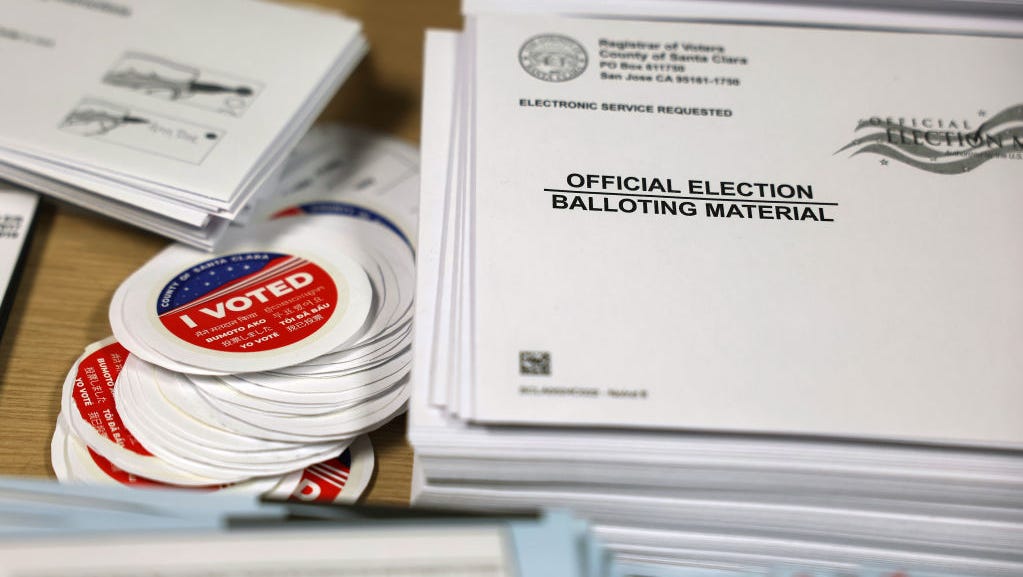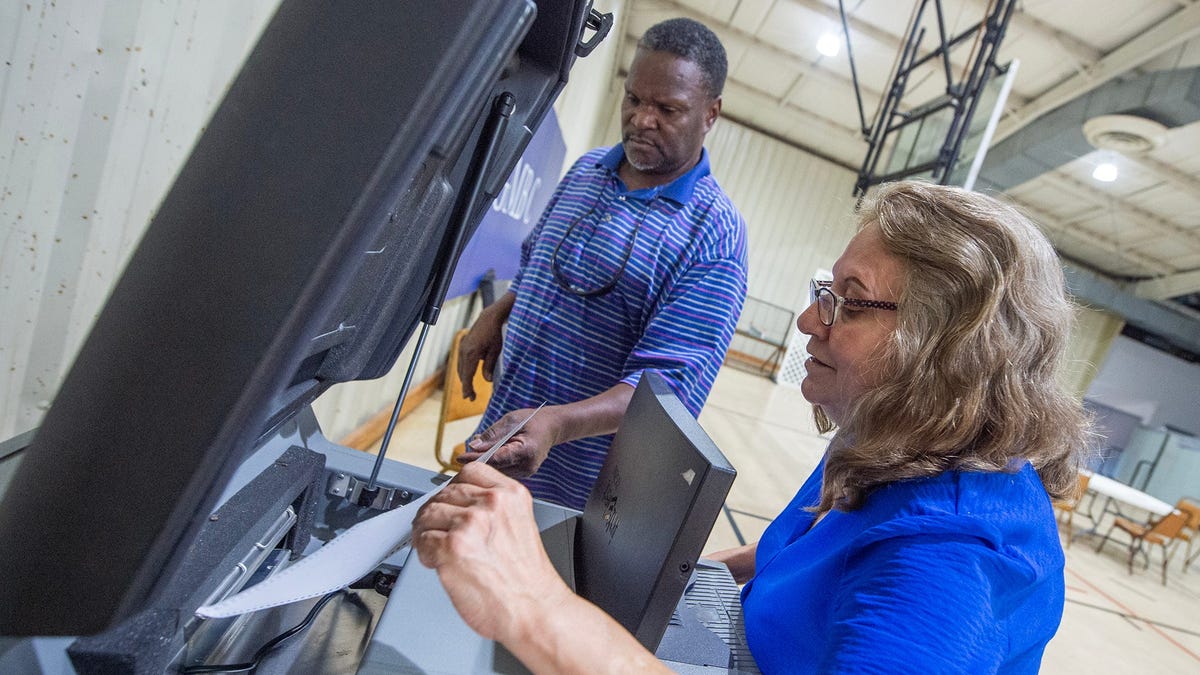The Justice Department has sued Maine and Oregon over the states’ refusal to hand over voter registration information.

Trump threatens to end mail-in voting before 2026 midterms
President Donald Trump threatened an executive order to end mail-in voting before the 2026 midterms.
Maine’s top election official said she doesn’t trust what the Trump administration would do with the personal voter information she has refused to turn over to the Department of Justice.
The information, which includes social security numbers, addresses and party affiliation, is at the center of two lawsuits filed Sept. 16 by the Department of Justice.
Maine’s Secretary of State Shenna Bellows told USA TODAY that since its initial request for the information in July, the department hasn’t given her satisfactory answers about how the information would be used. Similar requests for voter registration have been made to election officials in more than 25 states in the name of rooting out voters who are not authorized to live in the United States. Bellows questions why the Department then needs a mass database of Americans’ party affiliations.
“If the Justice Department, who has the unique power to investigate and prosecute people, suddenly has access to (information about who are) Democrats and Republicans and is making their decisions based on politics, that is very scary,” Bellows said.
The Justice Department alleges in lawsuits filed against both Maine and Oregon on Sept. 16 that the states broke federal law by refusing to provide electronic copies of statewide voter registration lists and information regarding voter list maintenance to the Trump administration.
Earlier in the summer the Department asked more than two dozen states to turn over their complete voter rolls, including party affiliation, social security numbers and addresses, to the federal government as part of its effort to check if noncitizens are voting.
Bellows said only one previous administration has ever asked for Maine’s voter rolls: Trump’s during his first term. The request, made by a Presidential Advisory Commission Trump created, not the Justice Department, was summilarily rejected by secretaries of state from both parties, she said.
“Every secretary in 2017 said no to turning over sensitive personal information of voters,” she said.
Bellows said that she has concerns about what the Department plans to do with personally identifying voter information for millions of Americans.
“The states, not the federal government and certainly not the president are in charge of elections,” Bellows said. “They are using the immense power of the federal government to intimidate election officials and try to get sensitive personal voter data.”
Asked about the allegations in the lawsuit, she replied to DOJ “we’ll see you in court.”
Trump administration says it’s keeping noncitizens from voting
On March 25, Trump signed an Executive Order titled “Preserving and Protecting the Integrity of American Elections” that the White House said was aimed at enhancing existing laws prohibiting noncitizens from voting in federal elections.
The order called for a comprehensive review of state voter registration rolls, to verify eligibility and U.S. citizenship. Nineteen states have sued to block the order.
The Justice Department alleged in the new cases that Maine and Oregon’s Secretaries of State were required by the National Voter Registration Act of 1993, Help America Vote Act of 2002, and the Civil Rights Act of 1960 to answer questions about their voter registration procedures and programs. It also alleges that states are required to turn over a full digital copy of the voter rolls when requested.
“The recent request by the Civil Rights Division for state voter rolls is pursuant to that statutory authority, and the responsive data is being screened for ineligible voter entries,” Department of Justice spokeswoman Natalie Baldassarre told USA TODAY.
Baldassarre did not respond to questions of why the Department is suing Maine and Oregon and not other states.
Election officials in New Hampshire, Pennsylvania, Minnesota, Washington and other states have said no or pushed back on the request. Some states, like Colorado, have provided DOJ with voter information available to any member of the public. Indiana’s Secretary of State Diego Morales provided the department with personally identifiable information on all registered voters, but withheld voting history.
The DOJ is suing only those states run by Democrats, Oregon Secretary of State Tobias Read said in a statement provided to USA TODAY.
“That tells you everything you need to know. For the federal government, this is all about politics,” he said. “Let’s be clear: this isn’t about secure elections. It’s about power and silencing anyone who opposes them.”
Information requests
Stateline reported Sept. 9 that the Justice Department is sharing state voter roll lists it has obtained with the Department of Homeland Security in an effort to find people in the country illegally.
Noncitizen voting is extremely rare, but has become a key argument on the right for requiring identification while voting or limiting vote by mail. One study of the 2016 election found that officials raised concerns about 30 votes from possible noncitizens out of 23.5 million votes cast in 42 jurisdictions. That accounts for 0.0001% of the vote.
The Brennan Center for Justice, a nonpartisan good government group based at New York University has been tracking public reporting on the requests for election data. Since May, the Justice Department has requested information about election administration procedures and processes from at least 33 states, according to Brennan. It has asked at least 27 of those states for copies of their voter registration lists.
The Brennan Center’s data shows at least 11 states have provided the Justice Department with some form of its voter rolls, with most giving the department “only the publicly available versions of their voter files, which vary by state but may include information such as voter names, addresses, partisan affiliations, and voting history.”
The state-by-state review of how officials manage their voter rolls and remove ineligible voters is so far focused on battleground states.
“When the Trump administration is targeting only Democratic secretaries of states and not Republican secretaries of state who are also standing up, then it raises real questions about what they’re going to do with sensitive, personal voter data,” Bellows told USA TODAY.
